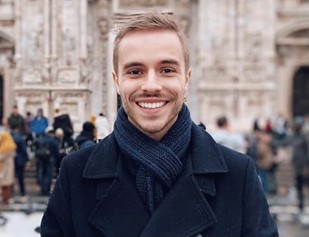What does your current role look like day to day?
Currently I am a lecturer at Sheffield Hallam University on the Radiotherapy and Oncology degree programme.
My current day to day can vary massively depending on the time in the academic year. I can either be teaching lectures, seminars, practicals or I can be visiting Nottingham City Hospital where I look after the students there, or I can be marking or I can be involved in the recruitment process of the next cohort of students.
When I was working on the treatment floor a typical day meant a 7.5 hour shift where the machine could treat anywhere between 30-40 patients a day.
The beauty of being a therapeutic radiographer is that due to delivering radiation and ensuring we are safe, we must always deliver treatment in a team of two. Therefore the comradery between staff members makes a huge impact on the job satisfaction as you will spend a lot of time with the team you are working with on that machine.
You can also see a varying range of patients both in terms of diagnosis and also as individuals, some patients will talk your ear off and some will be quiet and reserved and some will cover every aspect in between.
Each patient is unique and different and the ability to see a person everyday for their treatment over a period of several weeks and build that report is truly a very enjoyable aspect of the job.
How did you come to be in the position you are in now?
I am northern and my whole life is up north therefore staying at Cambridge (despite really enjoying my time there) was never a sustainable long term plan as the closest relative or friend (outside of the department) was 3 hours away.
That is why I decided to move up to Leeds when the job role came out.
A huge aspect of the job of being a therapeutic radiographer is education. Whether that is education of staff, students or patients – you can always find some aspect of education.
I thoroughly enjoyed spending time with students assisting their learning and development and I took great enjoyment watching their professional skills develop and watching them progress.
When the role of lecturer at Sheffield Hallam came open I was advised to apply for it by a close friend who had looked after me during my time in Middlesbrough (my clinical placement site).
The first job was posted in November 2019 which I just narrowly missed out on achieving. I was advised to undertake some guest lectures at the university to enhance my experience and I also undertook an education MSc module as part of my own MSc progression.
The next job advert was out in December 2020 and therefore I used my previous interview experience and guest lecturing as learning and this time I was successful in achieving the role of lecturer.

